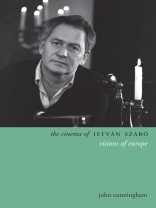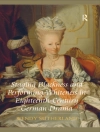István Szabó is one of Hungary’s most celebrated and best-known film directors, and the first Hungarian to have won an Academy Award for Best Foreign Language Film, for
Mephisto (1981). In a career spanning over five decades Szabó has relentlessly examined the place of the individual in European history, particularly those caught up in the turbulent events of Central Europe and his own native Hungary. His protagonists struggle to find a place for themselves, some meaning in their lives, security and a sense of being, against a background of two world wars (
Colonel Redl,
Confidence), the Holocaust (
Sunshine), the Hungarian Uprising, and the Cold War (
Father,
25 Fireman’s Street,
Taking Sides). This is the first English-language study of all his feature films and uses material from interviews with Szabó and his collaborators. Also included are chapters on his formative years, including his time at the famous Budapest Film Academy and the relationship of the state to the film industry in Hungary.
Inhoudsopgave
Acknowledgements
Introduction: Beginnings
1. Born into the Storm
2. Growing Up, Film School and 1956
3. The Early Films: The Age of Daydreaming (Álmodozások kora); Father (Apa–egy hit naplója); Lovefilm (Szerelmesfilm)
4. The ‘Budapest’ Films: Films: Budapest, Why I Love It (Budapest, amiért szeretem); 25 Fireman’s Street (Tűzoltó utca 25); Budapest Tales (Budapesti mesék); City Map (Városterkép) and Confidence (Bizalom)
5. Tales from Mitteleuropa: Mephisto; Colonel Redl; Hanussen
6. New Europe, New Hungary, New Problems: Meeting Venus and Sweet Emma, Dear Böbe (Édes Emma, drága Böbe)
7. ‘The man who comes from somewhere else is always suspect’: Sunshine
8. To Go or Stay? Taking Sides
9. Adaptations: Being Julia; Relatives; and The Door
10. The Controversy Surrounding the Events of 1957 and After
11. Szabo, Hungarian Cinema and the Question of Censorship–a Note
12. Some Conclusions
Notes
Filmography
Bibliography
Index
Over de auteur
John Cunningham is the author of
Hungarian Cinema: From Coffee House to Multiplex (2005) and many other articles and essays on Eastern European and particularly Hungarian cinema. He is now retired, but most recently taught Film Studies at Sheffield Hallam University, UK.












